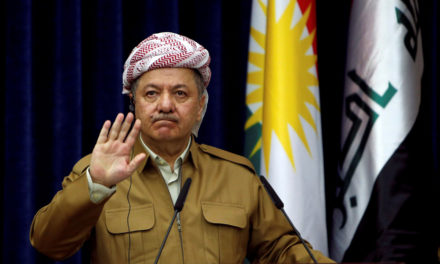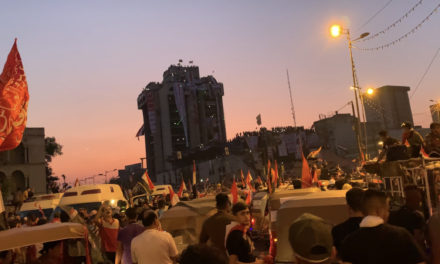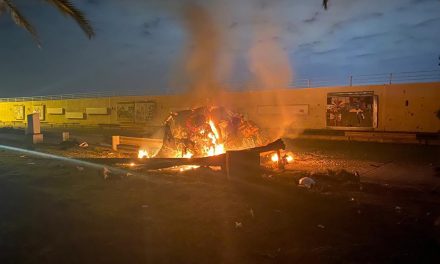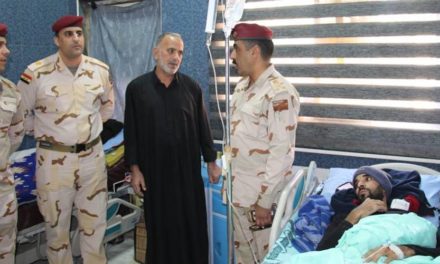Kurdistan Region of Iraq is once again witnessing waves of protests. Just like that of December 2017, the cause of people’s outrage is the issue of salaries of employees administrated by the Kurdistan Regional Government (KRG). Since 2014, the KRG has not been paying their employees’ salaries in full, and in many instances not paying them at all.
After several waves of violent demonstrations following the political crisis that was sparked by the September 2017 Kurdish referendum, the federal government of Iraq promised to pay the salaries of KRG employees, although this is supposed to be the responsibility of the KRG.
Baghdad also offered to pay the Peshmerga their salaries, something that has always been a major point of contention between Baghdad and Erbil, given that these forces do not report to the former but to the latter. Iraq’s Prime Minister, Haider Al-Abadi promised on several occasions that the payment of the salaries would happen only after auditing the number of public employees provided by the KRG, which are questionable even according to KRG officials.
After much deliberation, the KRG finally started to cooperate with federal government committees to resolve the issues of the numbers, and in response, Baghdad started paying the salaries of the audited payrolls. However, what the Kurdish authorities did upon receiving the money from Baghdad was continuing the austerity measures they had imposed in the past by paying employees only half of their salaries.
The main reason for the continued austerity measures is the debt payments the KRG must make to international oil companies, which were oil contracts not approved by Baghdad. The total debts are billions of dollars and Baghdad is unwilling to service them on behalf of Erbil.
Not paying the salaries in full sparked outrage this week in the major Kurdish cities and led to demonstrations and strikes. Unfortunately, as in the previous demonstrations, the authorities did not deal with the public outcry peacefully. However, what is notable is that observers report civilians associated with the authorities attacking and harassing protesters. Footages of attacks and images showing signs of torture surfaced on social media indicated that systematic abuse has been taking place to suppress activists and hold them in check.
While this approach is unfortunately not new when it comes to Iraqi Kurdistan, it saw a rise after the Kurdish referendum and the resignation of Masoud Barzani from his post as the president of the semi-autonomous region. Shortly after his resignation, the parliament of the Kurdistan Region was sieged by mobs and members of the parliament were battered.
The authorities in the Region decided to respond to the demands of the people by modifying, but not abolishing the austerity system applied to KRG employees’ salaries. Nevertheless, when asked in a press conference about the civilians who were beaten up and demonstrators attacked with knives, the KRG Prime Minister, Nechirvan Barzani stated that to end riots and chaos, all means available to the regional government are going to be used.
The events in the Kurdistan Region of Iraq, starting from the developments after the referendum to the ongoing demonstrations indicate several issues that cannot be ignored anymore.
First, while in the past one could get away with it, it is now impossible to say that the Kurds are demonstrating because of economic hardship only. While the salaries sparked the demonstrations, the public discontent goes back to the way Kurds are ruled by the two dominating parties, the Kurdish Democratic Party (KDP) and the Patriotic Union of Kurdistan (PUK). As known to observers of Kurdish affairs, the people refer to these two parties as the ‘ruling families’ given that both parties divide the region between themselves and control it through nepotism and cronyism.
The second issue is that the Kurdish authorities and specifically those affiliated with the KDP will continue to use violence and coercion when dealing with demonstrators. The response by the Kurdish prime minister describes more or less the approach of the ruling parties, in particular the KDP, which intends to continue using force in the future as long as it can get away with it. The Kurdish prime minister’s choice of words at the peak of the crisis is very important here, and it is unfortunately consistent with what is happening on the streets, which makes activists really worried about the freedom of expression in the Region. Slogans like “beacon of democracy” used by people like Barnard-Henri Lévy cannot do much anymore to hide the reality of what is really going on.
The crisis also shows what other opposition parties have been saying in the past regarding the referendum. It was a political move to garner internal support, rather than a serious effort to lead the Region towards independence. The KDP gambled with the future of the Kurdish people, trying to regain the political capital lost in the past due to weak performance and hostile attitudes towards the opposition and the masses supporting it. The failure to get international support for independence, the risky deals with international oil companies, and the inability to pay salaries to the Kurdish people show the magnitude of economic mismanagement and lack of political leverage that was skillfully hidden through the performance of well-oiled media machines that distracted the world with a tightly woven narrative from the real problems the Kurdish rulers were facing.
Furthermore, while the issues between Erbil and Baghdad are old, the arguments Kurdish authorities use to justify their actions or inaction, which are all based on blaming Baghdad, will not work on the Kurdish people anymore. Despite all the ‘hard feelings’ between Baghdad and Erbil, the former followed through with its promises the moment its conditions were met. The Kurdish people witnessing Baghdad’s sincerity is a good sign and prevents Kurdish politicians from using anti-Baghdad sentiments anymore to score political points instead of dealing with the real issues at hand.
None of this is new to observers of Kurdish affairs, however the demonstrations further solidify the diagnosis made in the past that the discontent of the Kurdish people is very deep, that the authorities do not have the intention to change their methods, that the real purpose of the referendum was aiming to hide political failures but instead failed miserably, and that everything happening in the region is not Baghdad’s fault.
The discontent of the Kurdish people is with the policies and responses of the regional government to the problems the Kurdish people are facing. The current Kurdish authorities will not get away with their methods of trying to silence the masses. It is time for the Kurdish authorities to forget the approaches of authoritarian regimes and instead take the problems of the people seriously. As the indicators show, their political future in the region has become highly questionable.

Muhammad Al-Waeli
Muhammad Al-Waeli is an Iraqi commentator on political and social issues. He is currently doing a PhD in Human Resource Management and is interested in politics, media, and development.










